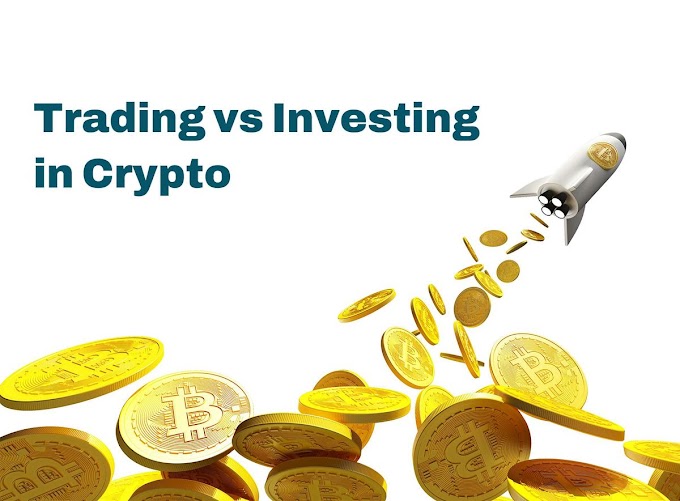In the dynamic world of online trading, success isn't solely about making the right moves—it's equally about avoiding the wrong ones. Many traders, both novices and seasoned professionals, fall into common traps that can erode profits and confidence. Let's delve into five critical mistakes that could be undermining your trading endeavors and explore strategies to steer clear of them.
1. Overtrading: The Pitfall of Excessive Activity
Overtrading occurs when traders execute too many trades in a short period, often driven by the desire for quick profits or the fear of missing out (FOMO). This behavior can lead to increased transaction costs, emotional exhaustion, and poor decision-making.
Why It's Detrimental:
- Increased Costs: Frequent trading amplifies commission fees and spreads, eating into profits.
- Emotional Strain: Constant market monitoring can lead to stress and burnout.
- Reduced Decision Quality: Rapid trading often bypasses thorough analysis, leading to impulsive decisions.
Avoidance Strategies:
- Set Clear Criteria: Establish specific conditions for entering and exiting trades.
- Limit Daily Trades: Implement a cap on the number of trades per day to maintain discipline.
- Focus on Quality: Prioritize well-researched trades over frequent, speculative ones.
2. Neglecting Risk Management: The Silent Account Killer
Risk management is the backbone of sustainable trading. Ignoring it can lead to significant losses, regardless of how accurate your market predictions are.
Why It's Detrimental:
- Potential for Large Losses: Without stop-loss orders, a single adverse move can wipe out significant capital.
- Emotional Decision-Making: Lack of predefined risk parameters can lead to panic-driven choices.
- Overexposure: Allocating too much capital to a single trade increases vulnerability.
Avoidance Strategies:
- Implement Stop-Loss Orders: Automatically exit trades at predetermined loss levels.
- Diversify Portfolio: Spread investments across various assets to mitigate risk.
- Adhere to the 1-2% Rule: Risk only 1-2% of your capital on a single trade.
3. Emotional Trading: Letting Feelings Dictate Actions
Emotions like fear and greed can cloud judgment, leading to impulsive decisions that deviate from your trading plan.
Why It's Detrimental:
- Impulsive decisions can lead to significant losses.
- Emotional trading can lead to inconsistent results.
- Fear and greed can cause traders to make irrational decisions.
Avoidance Strategies:
- Develop a Trading Plan: Stick to a well-defined plan to reduce emotional influence.
- Practice Mindfulness: Stay calm and focused during trading sessions.
- Review Trades Objectively: Analyze trades based on data rather than emotions.
- Impulsive Decisions: Emotional reactions can lead to chasing losses or exiting profitable trades prematurely.
- Inconsistent Strategy: Emotions can cause deviations from established trading plans.
- Increased Stress: Emotional trading often results in heightened anxiety and stress.
Avoidance Strategies:
- Develop a Trading Plan: Outline clear rules for trade entries and exits.
- Maintain a Trading Journal: Document trades and emotions to identify patterns and triggers.
- Practice Mindfulness: Engage in techniques to stay present and reduce emotional reactivity.
4. Ignoring Market Analysis: Trading Without Insight
Entering trades without thorough analysis is akin to gambling. Both technical and fundamental analyses are crucial for informed decision-making.
Why It's Detrimental:
- Lack of Direction: Without analysis, trades are based on speculation rather than data.
- Missed Opportunities: Failure to recognize market trends can lead to missed profitable trades.
- Increased Risk: Uninformed trades have a higher likelihood of failure.
Avoidance Strategies:
- Study Technical Indicators: Understand charts, patterns, and indicators like RSI and MACD.
- Stay Informed on Fundamentals: Keep abreast of economic news and company reports.
- Continuous Learning: Regularly update your knowledge through courses and reading.
5. Chasing the Market: The FOMO Trap
Jumping into trades based on market hype or fear of missing out can lead to buying high and selling low.
Why It's Detrimental:
- Poor Entry Points: Entering trades during peak hype often means buying at inflated prices.
- Increased Volatility: Hyped markets can be unpredictable, leading to rapid losses.
- Emotional Turmoil: FOMO-driven trades often result in regret and stress.
Avoidance Strategies:
- Stick to Your Plan: Only enter trades that align with your predefined criteria.
- Avoid Herd Mentality: Make decisions based on your analysis, not market buzz.
- Be Patient: Wait for the right opportunities rather than reacting to market noise.
Conclusion
Success in online trading isn't just about making profitable trades; it's equally about avoiding detrimental mistakes. By recognizing and steering clear of overtrading, neglecting risk management, emotional decision-making, ignoring analysis, and chasing the market, you position yourself for consistent growth and resilience in the trading arena. Remember, discipline and continuous learning are your allies on the path to trading success.







.jpeg)

.jpeg)
.jpeg)




.jpeg)

